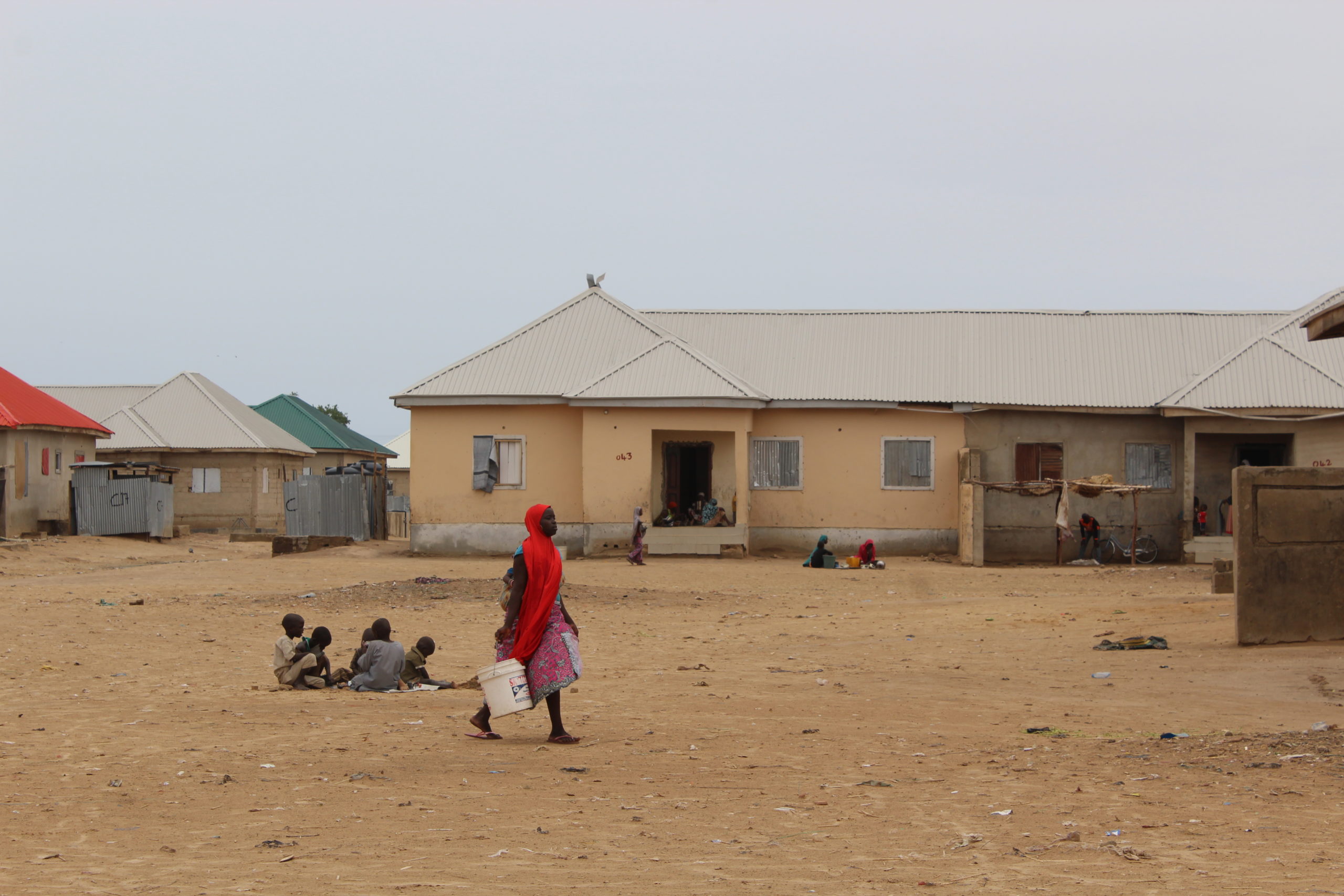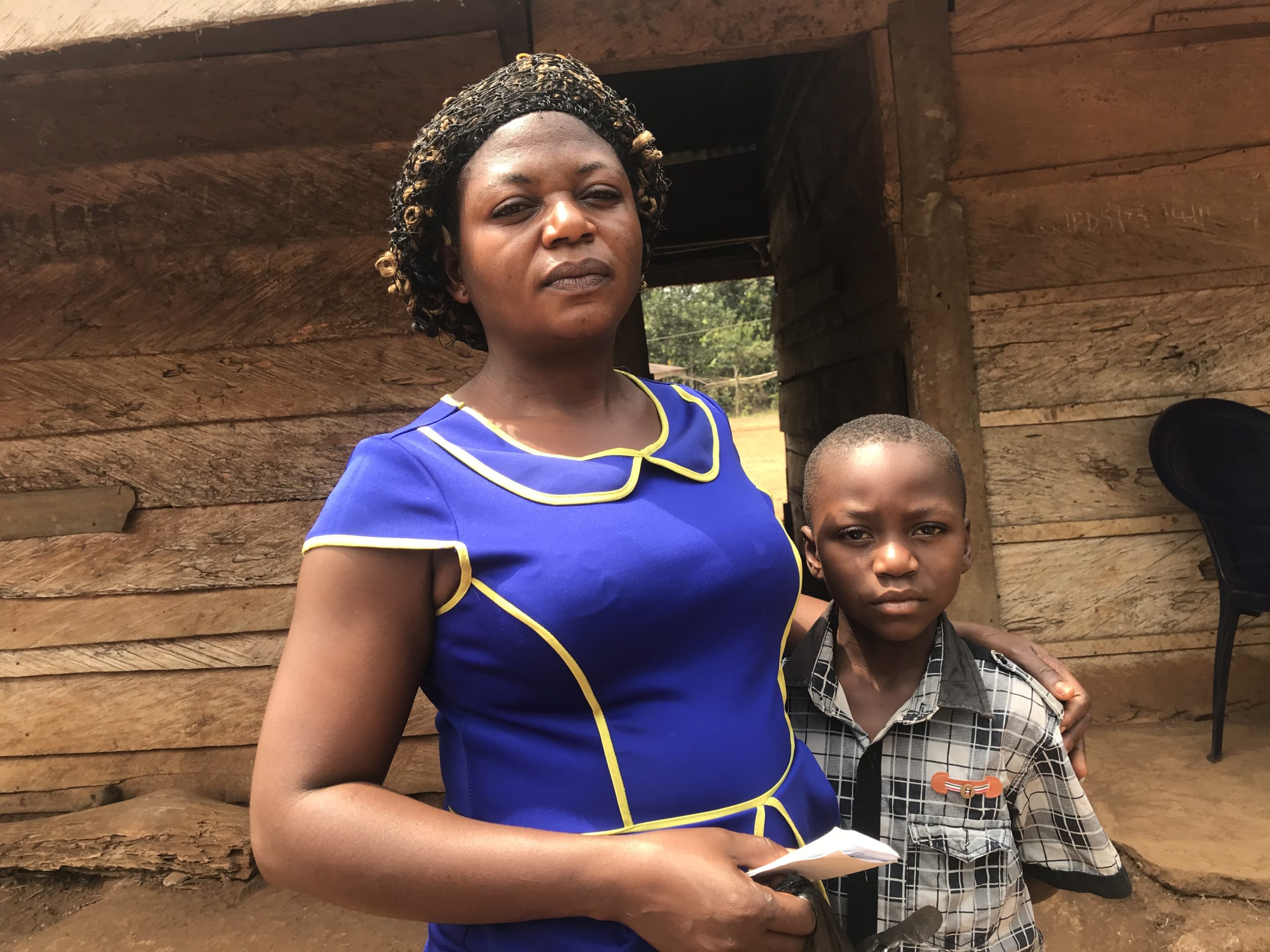Anthonia Ojong is a refugee in Nigeria’s southeastern state of Cross River, which borders Cameroon. The 55-year-old woman lives with her family of seven at a refugee settlement in the town of Ogoja.
More than three years of intense fighting between Cameroonian security forces and separatist fighters seeking independence for the anglophone minority has forced nearly 700,000 people in the mainly English-speaking regions of Cameroon to flee their homes.
Around 58,000 Cameroonian refugees have been registered in the southern Nigerian states of Akwa Ibom, Cross River and Imo as well as in the central and northern states of Benue and Taraba respectively.

Since she crossed the border to Nigeria in late 2017, Ojong and her family have depended largely on the UN refugee agency, UNHCR, for support. The family makes additional income by working in nearby farms.
But now they face a new threat: COVID-19.
Since the outbreak of the coronavirus pandemic in Nigeria in late February, the number of cases has continued to rise rapidly. As of June 7, Nigeria has recorded 12,486 cases of COVID-19, of which 3,959 have recovered and 354 have died.
Benue, Taraba, and Akwa Ibom –all Nigerian states with Cameroonian refugees– have active cases of COVID-19. Cross River is the only state in the country without an active case of the virus, but lack of testing could belie the real situation there.
Ojong, a widow, is worried that she might be unable to purchase food from local markets after the prices of food items soared amid restrictions on movement and lockdowns.
The UNHCR offers a cash-based intervention (CBI) of 4,600 naira ($12) monthly to enable refugees purchase food.
“I depend mainly on the CBI for survival,” she says, “but with prices of food going up we are struggling to survive.” For example, a circular container of garri, a staple made from processed cassava, now costs 12,000 naira ($31), a four-fold increase from the price in February.
Beyond food, the larger problem is the impact of the pandemic on the aid sector and how it could exacerbate humanitarian needs.
Since late March, Nigeria has banned interstate road trips as well as domestic and international flights. All land borders were also closed because health officials worried that Nigeria’s porous land borders could impede efforts to tackle the coronavirus if people entered and exited the country at will.
These restrictions are taking a toll on humanitarian operations, causing access constraints, disrupting supply chains and affecting delivery of humanitarian goods and assistance to internally displaced persons (IDPs) and refugees.
A humanitarian worker in Cross River said some staff have been laid off by aid organizations partnering with UNHCR to support Cameroon refugees due to limited operations.
“The camps are almost empty as refugees are moving to border villages to look for farm labor to survive,” she explains.
Nowhere is this impact more felt than in Nigeria’s northeast region where Boko Haram’s ten-year insurgency is making life unbearable for local people.
The conflict has killed more than 36,000 people and displaced 1.8 million people inside Nigeria.
Nearly 80 percent of the displaced populations are in Borno state, the epicenter of the crisis.
Three aid workers who spoke with Toward Freedom said the pandemic has forced humanitarian organizations to suspend some of their programs.
“The COVID-19 virus outbreak in Nigeria has affected a lot of displaced people who are beneficiaries of our programs and it is making it difficult for us to reach them effectively, especially those receiving livelihood training and support,” Kamil Isa, an aid worker in Maiduguri, the capital of Borno, explained.
He said the lockdowns imposed by state authorities prolonged the delivery of humanitarian assistance to IDPs.
Another aid worker with a faith-based organization complained that it took longer than necessary to cut through bureaucratic processes and get aid to vulnerable people.
“Ideally, services that we delivered to vulnerable populations within two days now take up to five days,” she said.
Aid workers also say they are worried that the pandemic is creating additional challenges for IDPs who are already grappling with severe malnutrition, overcrowded camps, lack of adequate health and sanitation facilities.
Overcrowding means social distancing remains impossible for most displaced people, an aid worker with the faith-based group remarked.
Poor living conditions in the camps for internally displaced people, including poor access to running water, and inadequate hygiene and sanitation facilities, have provided ideal conditions for several disease outbreaks in the past, including malaria, measles, and cholera. The same conditions, which remain unchanged, might also magnify the vulnerability of displaced people to the pandemic.
In a statement released in April, Médecins Sans Frontières (MSF) warned that if the “chaos” caused by the COVID-19 virus is allowed to hamper ongoing humanitarian assistance, “the results will be catastrophic.”
“In all the IDP settings where MSF has operations in Borno state, gaps in essential water and sanitation facilities exacerbate the threat posed by COVID-19,” Siham Hajaj, MSF head of mission in Nigeria, said in a statement.
“These gaps, combined with the levels of overcrowding, and endemic health issues with a lack of corresponding health infrastructure, underscore the vulnerability of the population.”
Borno, Adamawa and Yobe states have all recorded COVID-19 cases, including in IDP camps, according to the United Nations Office for the Coordination of Humanitarian Affairs (OCHA).
The Nigeria Centre for Disease and Control has warned that 75 percent of COVID-19 cases in the country have “unknown sources of infection,” meaning that there is ongoing community transmission.
As the pandemic continues to move through communities and towns, humanitarian needs become more dire.
In May, OCHA reported that the number of people in need of “urgent assistance” in Nigeria’s northeast soared to 7.9 million this year, up from 7.1 million in 2019.
OCHA estimates that some 3.8 million people are likely to be food insecure during this year’s lean season, usually the period between harvests which last from May to August.
Humanitarian organizations say they have installed hand-washing points and quarantine shelters in camps to reduce the spread of the coronavirus. However, implementing physical distancing during distribution of aid can be challenging, according to Isaac Aiden, a humanitarian worker in Maiduguri.
In Cross River, most Cameroonian refugees living within the camps are organized into small communities with a sub-unit leader who oversees distribution of aid and takes note of challenges affecting them. Outside of the official camps, the refugees are coordinated by zonal leaders who spearhead distribution of aid.
These leaders help organize the refugees within their locality to gather for distribution of aid or for general meetings to discuss issues affecting them. They also fight for the common interests of the refugees and push humanitarian workers to deliver relief items without delay or register new arrivals.
Similar levels of organization are seen in IDP camps in Maiduguri. In fact, in February of 2019, some IDPs protested shortages of food, medicine and water in their camps and blocked a busy highway in Maiduguri. This happened again in June of that year over food shortages. These protests brought greater attention to their plight and forced the state’s emergency management agency to explain the reasons for the delay in distributing food packages.
Back on the Nigeria-Cameroon border in Nigeria’s extreme southeast, Majory Ajing Assam says the pandemic has truncated the already meagre support that arrives to Ekugatai, a border village in Cross River.

Just over half of Cameroonian refugees in Nigeria live in some 87 host communities along the border. Other refugees stay in four camp settlements in Cross River and Benue states.
But it is refugees like Assam, a mother of three who lives outside the formal camps, that the pandemic might hit harder.
Humanitarian agencies barely visit her remote village of Ekugatai to deliver food packages and other relief items. And some refugees outside the official settlements do not receive the CBI. In December, only 29,019 refugees received the CBI, the UNHCR reported.
“Sometimes we see them just once in a whole year,” Assam says, referring to humanitarian organizations.
To care for her kids, she works in cocoa farms mainly during the rainy season for 500 naira ($1.30) per day.
“Sometimes nobody will call you to work in their farms, and it is very tough for us here,” the 37-year-old Cameroonian refugee laments.
“How do we live well when we have no food, no money, no clothes?”
Author Bio
Linus Unah is a freelance Nigerian journalist covering global health, conflict, development and conservation/environment. His work has appeared in The Guardian, Al Jazeera, National Public Radio, TRT World, Thomson Reuters Foundation, and Devex. Follow him on Twitter @linusunah.
